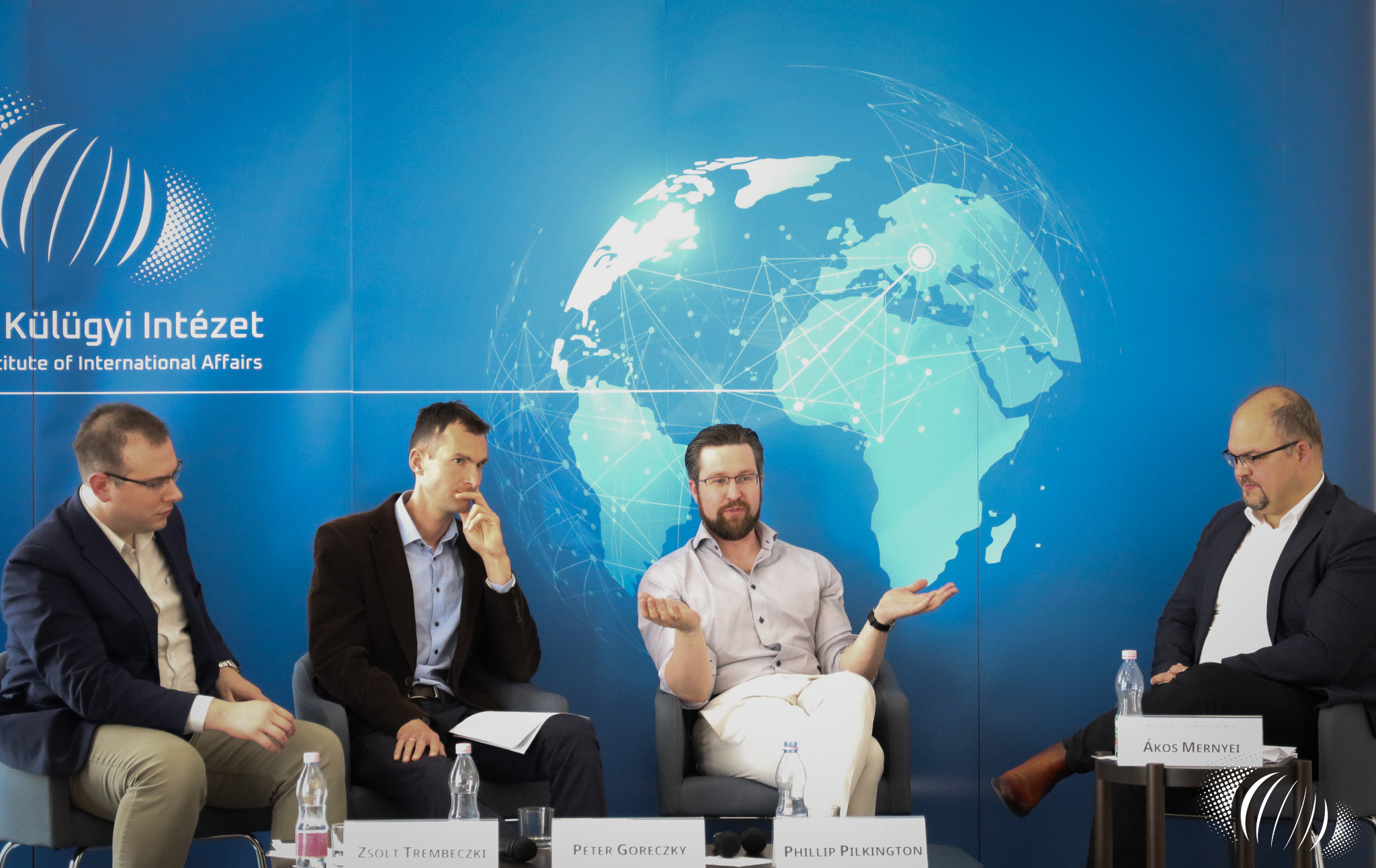Roundtable discussion on economic security at HIIA
On 30 April 2024, the Hungarian Institute of International Affairs (HIIA) organised a roundtable discussion entitled “The age of economic security: derisking strategies around the world”. Zsolt Trembeczki, Philip Pilkington and Péter Goreczky, HIIA research fellows participated as panellists, while the discussion was moderated by Ákos Mernyei, advisor to the president of HIIA.
During the discussion, the experts analysed the increasingly popular “de-risking” government policies, highlighting that the concept has gained a geopolitical content recently, when Brussels has been trying to formulate the EU’s future strategy towards China. Beijing, however, had already used the instrument of limiting or demarcating relations with the West well before that. Reducing technological exposure to the outside world is also a regular feature of Beijing’s economic development strategies. The US policy of de-risking serves essentially a threefold purpose: first, to maintain the US as a global leader in technological development; second, to reduce dependence on China for critical raw materials; and third, to slow the development of Chinese military capabilities.
During the discussion, it was mentioned that the joint Communication on a European Economic Security Strategy, published by the European Commission and the High Representative in June 2023, sought to lay the foundations for how Brussels envisages managing the risks inherent in external economic relations. In this context, the main risks for the EU are supply chain insecurity, energy supply, physical and cyber security of critical infrastructure, technology leakage and the weaponisation of economic dependence.
Experts argued that when shaping Hungarian foreign policy, it was worth considering that the major players in the global economy are equally using the means to restrict economic relations. And the process will accelerate, partly independently of China, simply because of the disruptive events in the global economy (spectacular technological development, vulnerability of supply chains, race for critical raw materials, war in Ukraine, etc.).

